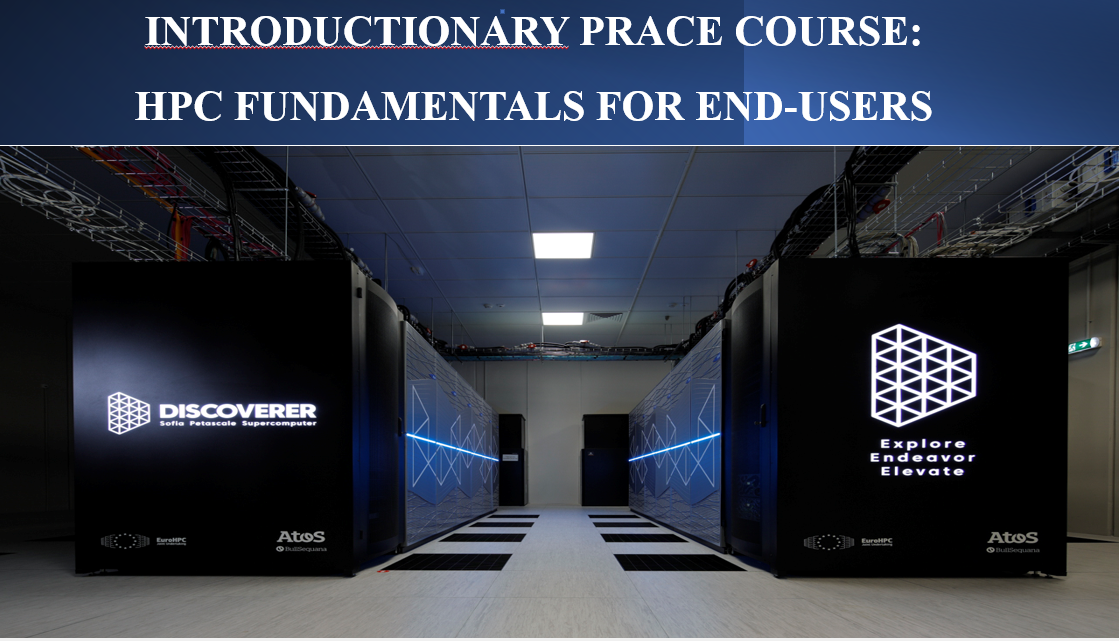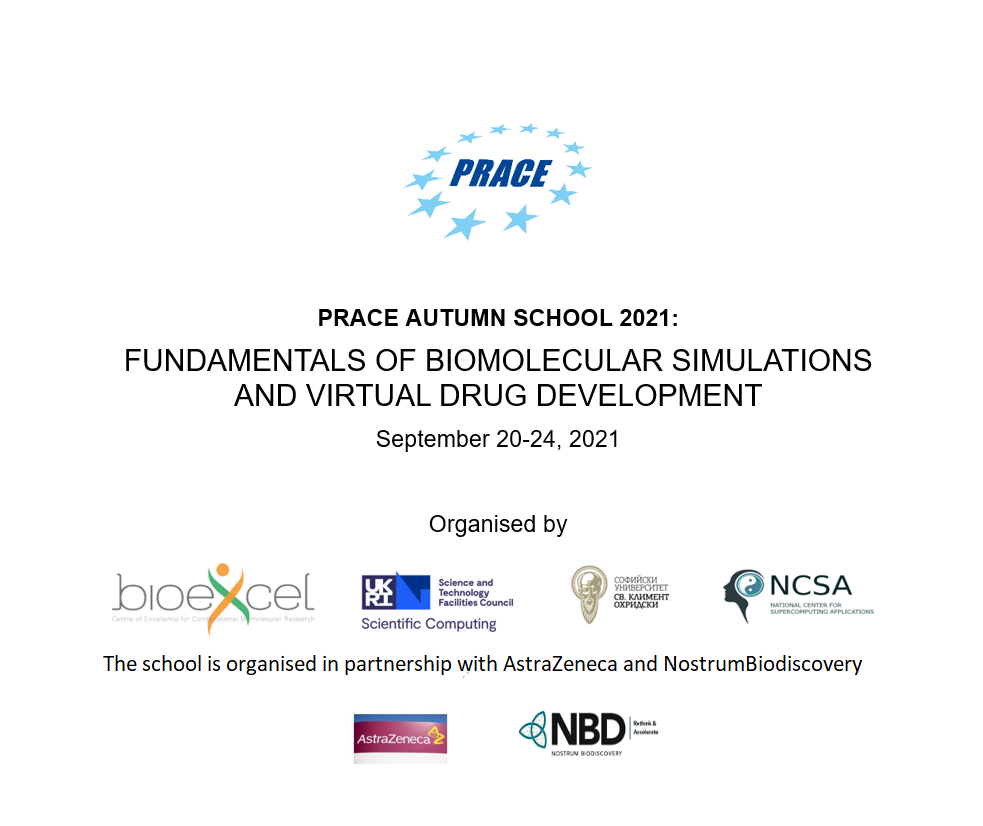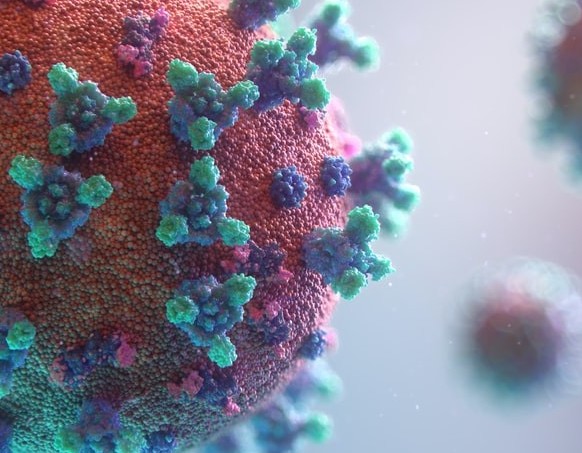Events

Description: HPC Fundamentals for end-users is an introductory course on how to use Discoverer supercomputer, a
EuroHPC petascale system capable of executing more than 4,2 Petaflops Rmax and over 6 petaFLOPS Rpeak,
by users with no prior exposure to supercomputing systems. This is the first training course in a series
of two courses for beginner and intermediate HPC users that will allow them to master
their skills, knowledge and confidence to work with supercomputing environments. The course
will start with an introduction to the Discoverer systems and computing architecture
including storage subsystem and computer network infrastructure. During the four
days training, there would be a number of hands-on exercises so that attendees will
gain immediate experience on working in a typical user environment by building and running
state of the art parallel codes on the Discoverer system. Practical sessions will cover examples
from different research fields such as Life Sciences, Material Science and Multiphysics simulations.
Sofia TechPark will graciously provide Discoverer compute resources for the
hands-on sessions. The series of two courses is a joint effort by NCSA Bulgaria and PetaSC/Sofia TechPark,
BioExcel Centre of Excellence, STFC Daresbury Laboratory.
Here is the invitation letter from Prof. Stoyan Markov, Chairman of NCSA.
Registration: Please click here.
Objective: The objective of the first course is to provide attendees with essential knowledge in
modern petascale architectures and computing environments as well as the necessary fundamental
skills and knowledge on how to harness the capacity and capability of supercomputing systems up to the petascale level.
What you will learn
- Understanding of modern HPC architectures with a focus on Discoverer system
- Navigating through typical HPC environment on Discoverer (terminal access and file transfer tools, usage of the module system)
- Submitting jobs by utilizing batch queuing and scheduling system SLURM
- Working with compilers and build tools available on Discoverer
- Compiling and running parallel codes on GROMACS, CP2K, Alya, NAMD, DL_PLOY and DL_MESO
Target audience: Under-graduate and graduate students, PhD students, junior researchers (academy and industry),
IT specialists, Software Engineers or anyone who wants to use Discoverer petascale supercomputer system in their research & business.
Prerequisites: No prior knowledge and experience with computational methodologies and HPC is required.
Attendees should have basic computer management skills and be able to work comfortably on the
Unix/Linux command line, notion of compilers and build procedures. For those who would like to brush up on
their Linux knowledge, we are going to organize a dedicated course “Practical Introduction to Linux”
in January 13-14, 2022. The latter course is open only for registered attendees in the “
HPC Fundamentals for end-users” course. They can express interest in the refresh course by registering here.
Selection process: There is a threshold number of participants (no more than 40 registrations),
timely registration is essential. Attendees must be from institutions (universities, research
centers, and companies) based in the EU or Associated Countries to the Horizon 2020 Programme.
We will prioritise attendees from South-East Europe, Israel and Ukraine as well as
participants that come from other EU13 countries.
Programme: A detailed programme will be announced in early January 2022 on the course webpage.
A shortlist of the software packages for hands-on sessions includes GROMACS, CP2K, Alya, NAMD, DL_PLOY and DL_MESO.
Cost: There is no registration fee. The course is free of charge.
Registration deadline: January 25, 2022.
Organising committee leaders: Assoc. prof. Dr. Peicho Petkov (NCSA) and Prof. Dr. Simeon Stoyanov (PetaSC).
Contact: g.prangov@ncsa.bg
Below you can see the latest schools and training of NCSA.
The PRACE Autumn School on the Fundamentals of Biomolecular Modelling and Simulations for Applied Research and Virtual Drug Development
September 20-24, 2021
The school will provide an introduction to the fundamentals of modern approaches employed for modelling and prediction of the behaviour of bioactive systems and functional materials – molecular dynamics (MD), 3D Quantitative structure-activity relationship (3D QSAR), and QM/MM (Quantum mechanics/Molecular mechanics). We will focus on docking and MD-based free energy calculations and applying Quantum mechanics/Molecular mechanics (QM/MM) methods to study enzymatic reactions. The capacity of HPC facilities for performing such simulations will be outlined with an emphasis on commonly applied parallelisation techniques in computational science. All lectures and computational methods will be presented in a way accessible to applied scientists who are not specialists in those fields but would like to broaden their research scope. Lectures will be supplemented by demonstrations using GROMACS, HADDOCK and ChemShell - widely used software packages for HPC modelling and simulations. The target audience is junior researchers (post-graduates and post-docs) with a background in natural sciences and in particular, pharmacy, biochemistry and biophysics, working at European academic research institutions and industry. Trainees from Central and Eastern Europe are especially welcome. The school will accept a limited number of participants who will be admitted after a selection procedure. Participation is free.
The school is a joint initiative of PRACE, the BioExcel Centre of Excellence, STFC Daresbury Laboratory, NCSA Bulgaria, and Sofia University.


Confrence on High Performance Computing – Bulgaria 2019
June 12, 2019
The Conference will be held in Borovets, Bulgaria, from 2-nd to 6-th of September 2019. HPC 2019 will be open by the Commissioner Mariya Gabriel, Mrs. Karina Angelieva – Deputy Minister of Education and Science, and Acad. Julian Revalski, President of the Bulgarian Academy of Sciences, by the Department of Parallel Algorithms, Institute of Information…
Shaping Europe’s Digital Future
April 19, 2018
Shaping Europe’s Digital Future – Bulgarian Presidency event on High-Performance Computing Sofia, 19 April 2018 “Shaping Europe’s Digital Future – High-Performance Computing for Extreme Scale Scientific and Industrial Applications” is a Bulgarian Presidency event on High-Performance Computing. It will take place on 19 April 2018 at the National Palace of…
Young Researchers Event 2018
April 18, 2018
Young Researchers Event: Brain models and Computation for Brain Medicine Bulgarian Academy of Sciences, Sofia, Bulgaria Sofia, 18 April 2018 This event is open to the entire scientific community but especially targets young researchers. “Young Researchers Event: Brain models and Computation for Brain Medicine” is a Bulgarian Presidency event on Human Brain…
First Europe – China HPC Conference on “Partnership for supercomputing applications”
August 4, 2013
Information about first Europe – China HPC Conference on “Partnership for supercomputing applications”, April 08 – 10, 2013, Grand Hotel Sofia, Sofia Bulgaria The conference was an open forum addressed to a range of scientific and engineering challenges important for further development of the high-performance computing (HPC) in Europe and…